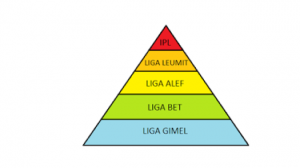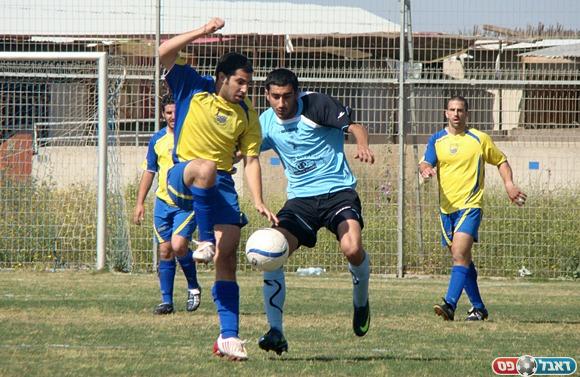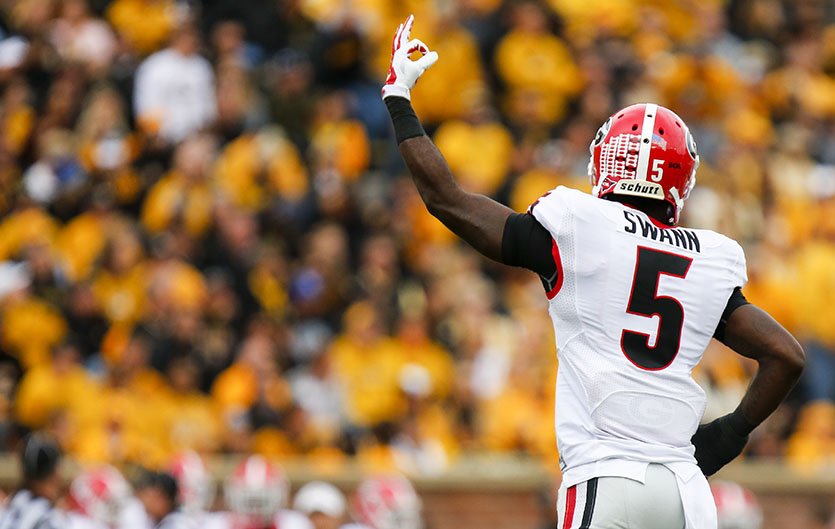In 2014, the Palestinian Football Association (PFA) called on FIFA, the international governing body of soccer, to expel Israel from the organization since Israel’s behavior in the Palestinian Territories was affecting player movements and maintenance of the Palestinian national soccer team. Palestine, a full FIFA member, initiated this move against Israel not only because of Israel’s treatment of the Palestinian players (some of whom had their careers ended after being shot in the feet by Israeli soldiers) but also to call attention to the situation in Palestine as a whole under Israeli occupation.
Israel responded by claiming that Palestine was “mixing sport and politics” and just trying to make Israel look bad. One Israeli club based in the Israeli settlement of Ariel echoed the national sentiment by stating, “the football field is not the political field” despite playing their games on what many consider to be stolen land. But, prior to withdrawing their petition to FIFA at the last minute, the Palestinians refuted Israel’s misguided attempt to silence them by referring to Israeli soccer clubs playing in illegal settlements in the Occupied Territories as examples of Israel flagrantly violating international law and displaying little initiative towards peace with Palestine. Due to this last minute withdrawal of the expulsion request by the PFA, there was no vote on the issue, and FIFA head Sepp Blatter merely created a committee to monitor Palestinian soccer so as to reduce Israeli abuses, something the Palestinians equated to the sport version of the long-frozen peace process between the two countries.
This year, in lieu of asking FIFA to outright suspend or expel Israel from FIFA, the PFA has called on FIFA to ban soccer teams playing in Jewish-only settlements in the West Bank, which are illegal under international law, or relocate those teams inside of Israel. Their request comes on the heels of the release of a report by Human Rights Watch, a well-respected human rights organization, which argues that the Israel Football Association (IFA) allowing their clubs to hold their home matches outside of Israel in West Bank Settlements is tantamount to a “war crime” and that Israel cannot allow those teams to compete without permission from the PFA. The report goes on to argue that the existence of such teams only works to economically aid the settlements and their residents while Palestinians nearby cannot even enter the settlements without having a permit or being of Jewish ancestry.
The Monitoring Committee Israel-Palestine, the committee set up by FIFA to mediate the disputes between the IFA and PFA, was expected to release its recommendations on the settlement clubs in mid-October, but the release was delayed by committee head Tokyo Sexwale due to the supposed inability of the committee to meet. While it seems like a necessary delay which allows the members of the committee to have appropriate time for considering their recommendations, many believe that FIFA is not taking the PFA’s claims seriously. In fact, many accuse FIFA and UEFA, the governing body of European soccer to which Israel belongs, of profiting from the settlement clubs through ticket sales and broadcasting rights in the settlements, in addition to giving hundreds of thousands of dollars to the IFA annually. Also, there is fear that should FIFA rule against Israel on the settlement clubs, the ruling will be difficult to enforce due to many western member states of FIFA, like the United States and the United Kingdom, backing Israel.
However, the situation may be even more complicated as Gulf States, most of which still have not recognized Israel as a legitimate state, could provide tacit support to Israel should FIFA sanction it. This comes as a result of Israel and Gulf States bolstering their economic and informal political ties in recent years due to their common opposition to Iran’s influence in the region. While the Gulf States still support the Palestinian cause, they would likely be reluctant to publicly oppose Israel in organizations like FIFA due to the economic and political consequences of such an action. With that in mind, the PFA likely cannot do much on its own to force the IFA and/or FIFA to act decisively on the settlement clubs.
While the Israeli soccer teams playing in the West Bank are casually mentioned in some media outlets, most of these articles never go into detail about to which teams the PFA is referring. One Israeli media outlet reported the clubs, but does not go into detail about where they play or in which division of the Israeli football system they play. The table below lists all IFA-sanctioned clubs playing out of settlements in the Palestinian Territories.
| League | Location | Relative Location (Google maps) | |
| Beitar Giv’at Ze’ev Shabi | Liga Bet South B | Giv’at Ze’ev, West Bank | 5 km NW of Jerusalem |
| Beitar Ironi Ma’ale Adumim | Liga Bet South B | Ma’ale Adumim, West Bank | 7 km E of Jerusalem |
| Hapoel Bik’at HaYarden | Liga Alef South | Tomer (Bik’at HaYarden RC), West Bank | About 8 km W of Jordan border |
| FC Ironi Ariel | Liga Gimel
Sharon |
Ariel, West Bank | 20 km E of Green Line |
| Hapoel Ironi Oranit | Liga Gimel
Sharon |
Oranit, West Bank | On NW part of Green Line |
| Elitzur Ironi Judah | Liga Gimel
South |
Kiryat Arba, West Bank | Directly E of Hebron, about 18 km from Green Line |
Despite persistent condemnation from Israel and its allies, the PFA and the Palestinian government may actually have a legitimate case against the IFA, UEFA, and FIFA for a few reasons. First of all, many fields on which these settlement teams play were seized from Palestinians after the capture of the West Bank by Israel in 1967, with some fields previously being private property used for agriculture. By sanctioning these clubs, IFA, UEFA, and FIFA are supporting the revocation of land from natives and repurposing it as something only Israeli settlers are able to use.
Second, Palestinian soccer teams as well as players are often restricted in their movement, and fields in the West Bank often do not meet FIFA regulations, while those in settlements are well-maintained due to funding from the IFA and FIFA. In one example, Palestinian soccer players from the town of Beitunia are forced to play on an uncompleted and dusty pitch because the local club ran out of funding during construction, while their neighbors in the nearby settlement of Givat Ze’ev enjoy a “bright green” field due to their status as a member of the IFA.

Third, in previous instances FIFA has not allowed club or national teams from occupied or disputed territories to join FIFA or participate in leagues of FIFA member countries. The best example of this is how soccer clubs from Crimea were forbidden from participating in the Russian soccer system by UEFA after Russia annexed Crimea in 2014. Also, soccer clubs from disputed territories like Abkhazia, South Ossetia, Transnistria, and Nagorno-Karabakh are barred from FIFA competitions and are not allowed to join the soccer systems of any FIFA member state. For example, even though Northern Cyprus is culturally Turkish and supported by Turkey, its teams cannot participate in the Turkish football system. This is because Northern Cyprus is internationally recognized as a part of Cyprus, a UN and FIFA member state, and teams from one country’s football system cannot play their home games in the territory of another country according to FIFA rules. Finally, although the settlement teams play in the lower tiers of the Israeli soccer pyramid, they inevitably serve as part of a feeder system for the upper tiers and their existence normalizes the use of settlements for developing Israeli soccer players.
As mentioned before, Israel’s defense against Palestine regarding its treatment of Palestinian players and the existence of these clubs was that sports and politics should not be mixed. To some extent this is true, as Israel was somewhat unfairly kicked out of the Asian Football Confederation in 1974 exclusively for political reasons despite being located geographically in Asia. But, while the expulsion was arguably inappropriate, it did not involve any UN member states breaking international law as flagrantly as Israel is doing now by sponsoring the existence of these soccer clubs inside occupied territory. Israel is in fact mixing sports and politics here by sanctioning teams in settlements in clear violation of international law without first negotiating with the relevant organizations. As such, Israel cannot decry mixing sports and politics when it is using sports to further its political motives. Settlements with soccer teams earn valuable revenue from the clubs and lay down roots in the area, possibly giving Israel a reason to declare them to be full-fledged Israeli cities.
Jerusalem is already home to a soccer club with fans known for their appalling racism toward Arabs, and permitting Jewish-only settlements to field teams only works to further marginalize both Palestinians and Israeli Arabs. Israel knows it came close to a potential suspension from FIFA a year ago and will likely face some sort of censure from the Monitoring Committee Israel-Palestine. As such, it must either work to abide by international law and FIFA rules or face the consequences for its actions in the Palestinian territories. While Israel may purposely leave the leagues in which the settlement clubs play off of the English website of the IFA, it is no longer possible for them to deny their existence, nor the fact that the IFA sanctioning them is a clear conflict of interest. To many soccer fans and human rights activists, these settlement teams only serve to “tarnish…the beautiful game of football” and by allowing them to play, Israel will only further hinder the already slow peace process and bring more scrutiny upon itself from both the sporting world and the international community at large.


